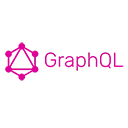GraphQL has gained significant popularity as a powerful alternative to REST APIs, and several libraries and frameworks have emerged to facilitate the development of GraphQL APIs. Below are some of the most popular options, along with their features and sample code to help you get started.
1. Apollo Server
Apollo Server is one of the most widely used libraries for building GraphQL APIs. It is designed to work seamlessly with various Node.js frameworks and provides a simple way to set up a GraphQL server with features like schema stitching, caching, and performance monitoring.
Key Features:
- Easy integration with existing Node.js applications
- Support for middleware and plugins
- Built-in support for subscriptions
- Extensive documentation and community support
Sample Code to Set Up Apollo Server:
const { ApolloServer, gql } = require('apollo-server');
// Define your schema
const typeDefs = gql`
type Query {
hello: String
}
`;
// Define your resolvers
const resolvers = {
Query: {
hello: () => 'Hello, World!',
},
};
// Create an instance of ApolloServer
const server = new ApolloServer({ typeDefs, resolvers });
// Start the server
server.listen().then(({ url }) => {
console.log(`🚀 Server ready at ${url}`);
});
2. Express-GraphQL
Express-GraphQL is a middleware for integrating GraphQL with Express.js. It allows you to create a GraphQL API quickly and easily while leveraging the power of Express for routing and middleware.
Key Features:
- Simple integration with Express applications
- Support for GraphiQL, an in-browser IDE for GraphQL
- Customizable middleware for authentication and logging
Sample Code to Set Up Express-GraphQL:
const express = require('express');
const { graphqlHTTP } = require('express-graphql');
const { buildSchema } = require('graphql');
// Define your schema
const schema = buildSchema(`
type Query {
hello: String
}
`);
// Define your resolvers
const root = {
hello: () => 'Hello, World!',
};
// Create an Express application
const app = express();
// Set up the GraphQL endpoint
app.use('/graphql', graphqlHTTP({
schema: schema,
rootValue: root,
graphiql: true, // Enable GraphiQL interface
}));
// Start the server
app.listen(4000, () => {
console.log('🚀 Server is running on http://localhost:4000/graphql');
});
3. Relay
Relay is a JavaScript framework developed by Facebook for building data-driven React applications with GraphQL. It provides a set of conventions and tools for managing data fetching and caching in a way that is optimized for performance.
Key Features:
- Declarative data fetching with GraphQL
- Automatic pagination and data normalization
- Optimized for performance with built-in caching
Sample Code to Use Relay:
import React from 'react';
import { QueryRenderer, graphql } from 'react-relay';
import environment from './Environment'; // Your Relay environment setup
const App = () => (
<queryrenderer environment={environment} query={graphql` query appquery { user(id: "1") { name email } } `} render={({ error, props })> {
if (error) {
return <div>Error: {error.message}</div>;
}
if (props) {
return <div>User: {props.user.name}</div>;
}
return <div>Loading...</div>;
}}
/>
);
export default App;
</queryrenderer>4. Hasura
Hasura is an open-source engine that provides instant GraphQL APIs over new or existing Postgres databases. It allows developers to create GraphQL APIs quickly without writing any server-side code.
Key Features:
Sample Code to Set Up Hasura:
# To set up Hasura, you can use Docker:
docker run -d -p 8080:8080 \
-e HASURA_GRAPHQL_DATABASE_URL=postgres://username:password@hostname:port/dbname \
-e HASURA_GRAPHQL_ENABLE_CONSOLE=true \
hasura/graphql-engine:latest
Conclusion
There are numerous libraries and frameworks available for building GraphQL APIs, each with its own strengths and use cases. Apollo Server and Express-GraphQL are excellent choices for Node.js applications, while Relay is ideal for React applications. Hasura provides a unique solution for quickly generating GraphQL APIs from databases. By choosing the right tool for your project, you can leverage the power of GraphQL to create efficient and scalable APIs.

